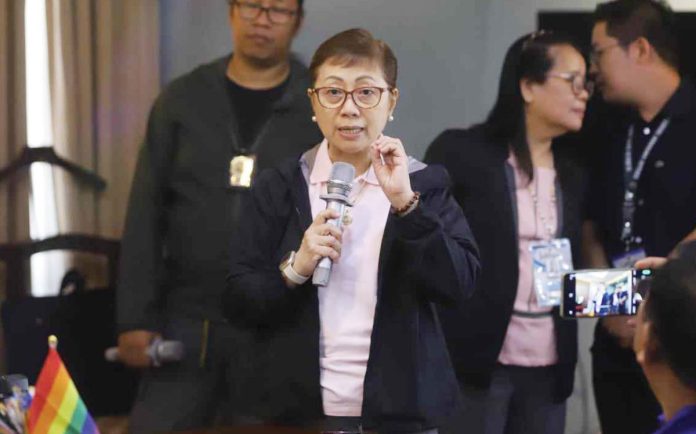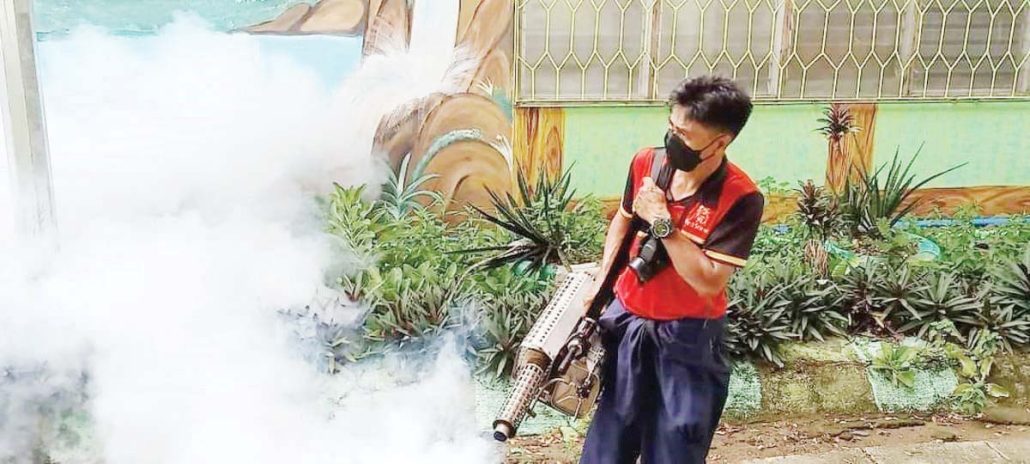
BY GEROME DALIPE
ILOILO City – Hemorrhagic dengue fever cases in this metropolis are declining, the City Health Office’s Epidemiology and Surveillance Unit (CESU) reported. As of Nov. 3, the number of barangays reporting clustered cases dropped to 14 from 54.
Since January 1, 2024, there have been 1,810 total cases, with eight still active, 1,796 recoveries, and six deaths, according to CHO head Dr. Annabelle Tang.
Dengue fever is a mosquito-borne viral infection caused by the dengue virus, primarily spread by the Aedes aegypti mosquito, which is most active during early mornings and late afternoons.
Despite the decline in dengue cases, Tang emphasized that the city government will continue its anti-dengue initiatives, including vector control through misting and clean-up drives.

Additionally, the hydration facility for dengue patients at the La Paz Maternity and Reproductive Health Center has been closed, having only admitted one patient since its reopening on August 21, 2024.
The City Health Office earlier set up two hydration units at the La Paz Health Center for the management of cases.
The 30-bed capacity hydration units provided immediate care, particularly for those experiencing severe dehydration, a common complication of dengue fever.
These units operated 24 hours to ensure that patients receive timely and adequate fluid replacement therapy vital in managing dengue.
Dengue symptoms often appear four to 10 days after a bite from an infected mosquito and include high fever, severe headaches, pain behind the eyes, joint and muscle pain, fatigue, nausea, skin rashes, and mild bleeding (such as nosebleeds or gum bleeding).
Severe cases can lead to dengue hemorrhagic fever, which causes severe bleeding, blood pressure drops, and can be life-threatening.
Dr. Tang explained that most parents of dengue patients, as well as the adult patients themselves, chose home management and monitoring due to the manageable nature of their cases.
To ensure patient well-being, barangay health workers have been deployed for ongoing monitoring of these cases.
Patients showing warning signs of dengue are referred and transported immediately to the hospital. The hydration unit was first activated during the 2019 dengue outbreak.
Additionally, all district health centers in the city have established dengue fast lanes to prioritize prompt consultation and care for symptomatic individuals, and they offer free dengue tests to facilitate early detection.
During their regular session on Aug. 28, the city councilors unanimously approved the City Disaster Risk Reduction and Management Council (CDRRMC) resolution declaring a state of calamity in this city due to the dengue outbreak.
With the declaration of a state of calamity, the city council also approved the utilization of a P7.04-million calamity fund to enable the implementation of intensified advocacy and response measures.
The Health and Sanitation Cluster had also formulated an outbreak response plan to curb the spread of the outbreak, which includes advocacy, surveillance, immunization activities, proper treatment, and management and procurement of medicines and other commodities.
City health officials reiterated that prevention and response measures and strategies should focus on regular and simultaneous cleanup to eliminate breeding places of mosquitoes starting from homes to the community.
Doctors also advised the public to get early medical checkups for two days when a fever occurs to get free tests for dengue at district health centers./PN



